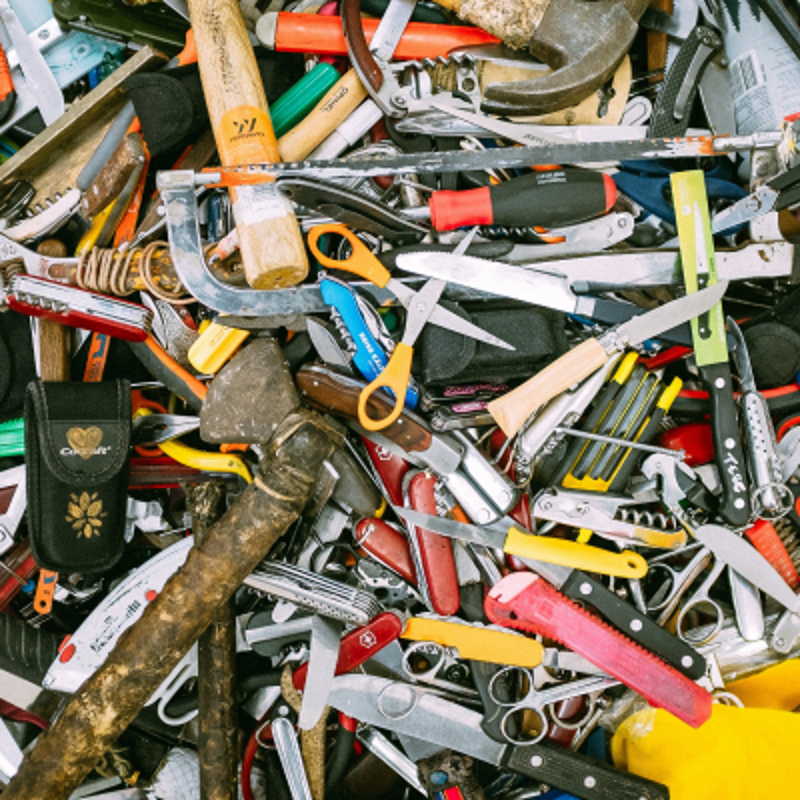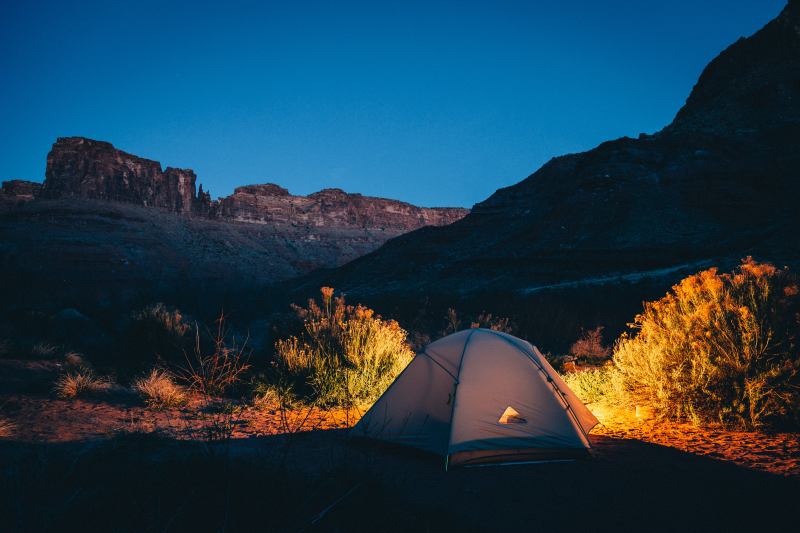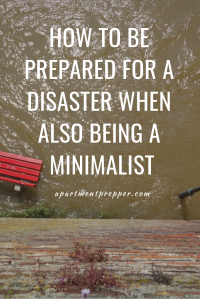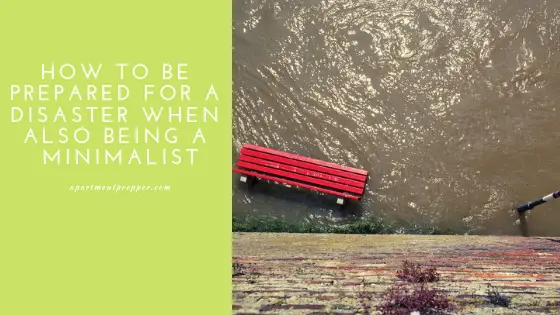Written by Andrés Berte
Sandy. Katrina. Hazel. What do these three names have in common? They are the names of previous natural disasters. Before the occurrences of said catastrophes, there were always people scrambling around trying to prepare themselves for these kinds of events, and after the catastrophes, individuals and society as a whole do what they can to stabilize the environment. While disasters are the main point of issues, the problem also lies in inefficient prepping. When done properly, prepping allows a person to deal with a catastrophe in a more effective way.
Consumerism While Prepping


Photo by Ashim D’Silva on Unsplash
Many people take an exaggerated approach when prepping that can easily lead to nonsense consumerism. They rush to the stores and grab whatever they heard they should have, without studying or making any analysis before. Those people may start off with the bare necessities, such as a first aid kit, water and batteries for emergency flashlights. However, before the person realizes it, the pantry and even all the house is filled with dozens of packages of unnecessary goods. This can be a problem, specially for those who live in apartments or tiny houses. Not just the house is crowded with needless or duplicated items, but when this person has an urgency to find vital objects, owning too many things can be confusing and it’s not going to help. To mitigate this from happening, preppers can start a minimalist philosophy to prepping.
Quality Over Quantity
In order for you to be a minimalist prepper, you must understand what that means. Minimalism is not about spending less money; it is about spending your money more wisely. For example, a minimalist wouldn’t buy a large amount of inexpensive clothing that will last few months, instead he would buy a piece of clothing that will last him a few years. Minimalists focus on the essentials and the fact that we can live with less material possessions. The idea is to save money in the long run and avoid cluttering your space.
More Knowledge = Fewer Things To Buy
The keys to minimalism and good prepping are knowledge and consciousness. You must be knowledgeable about your needs. What is the situation? When you are preparing for a SHTF situation, it’s important to know how the catastrophe will impact you and in what way. You can live near a volcano or where snowstorms or earthquakes are not rare. Is it wise to buy subzero clothing if you live near the tropics? For every situation, different items can save you and your family and different skills are required. So, it’s crucial to be aware of the area where you live. And remember that for a minimalist prepper, it’s more important to have knowledge than to own things. You can learn how to make a shelter and what types of wood are better to make a fire. You probably are going to be surprised when you find out which plants in your region are edible – and you won’t need to stock food for 6 months at home.
For example, if you live near the ocean where hurricanes can head to, then there is the risk that your house will be flooded or destroyed. Knowing that, you need to have a plan to be safe when the hurricane arrives. Most important things you have to think about are to keep yourself dry, how to access clean drinking water and how to survive to long term power outages. For every situation, different survival items will help. Search for a list of indispensable items for a prepper and be sure if it’s the case to buy everything. Maybe you already have some items at home or, thinking carefully, you understand that you don’t need all those things.
Limits to Minimalism
Just understand that there are limits to being a minimalist. You can pass on your favorite cup of Joe, that pair of jeans you don’t fit anymore or some of the old magazines you have, but you need a water supply. That means you’ll either need a water filter or bottles that you can refill. Certain things might always be on your list and minimalists don’t know everything that will happen, so it’s important to leave room for error.
Minimalism Prepping Exercises


Photo by Ben Duchac on Unsplash
Exercise minimalism. You can sleep in your car for a night, making sure to equip yourself with enough resources. You can filter snow or rain water to drink. You can go camping with only a small backpack or a bug out bag – when you come back, analyze if every item you carried was really useful or you could make without it. You can rid your house of those CDs and worn cardboard boxes in exchange for sustainable storage units and breathing room. You can have designated areas for the items that will definitely benefit you during a crisis. No stress or mess. All help, no hassle.
About the author
Andrés Berte is an avid trekker. He learnt to love outdoors while living in the Dolomite Mountains. Now he lives in Brazil and loves discovering the unspoiled nature in South America together with his wife. He writes for Survival Dan, a website about survival and wilderness tips.




what a wonderful common sense article! I especially like the “sleep in your car” part. Too many of us obsess about what to do in an EMP when there are things like winter weather and earthquakes which are far more likely and indeed may happen yearly. I especially like the part about knowledge, since even if you’re stony cold broke you can read or talk with someone and gain more knowledge.
Hi Aunt Mary, I am glad you like the article. Too often we get caught up in acquiring stuff, but there is another way to prepare and that is by learning skills and other practical ways to cope. Thanks for your comment!